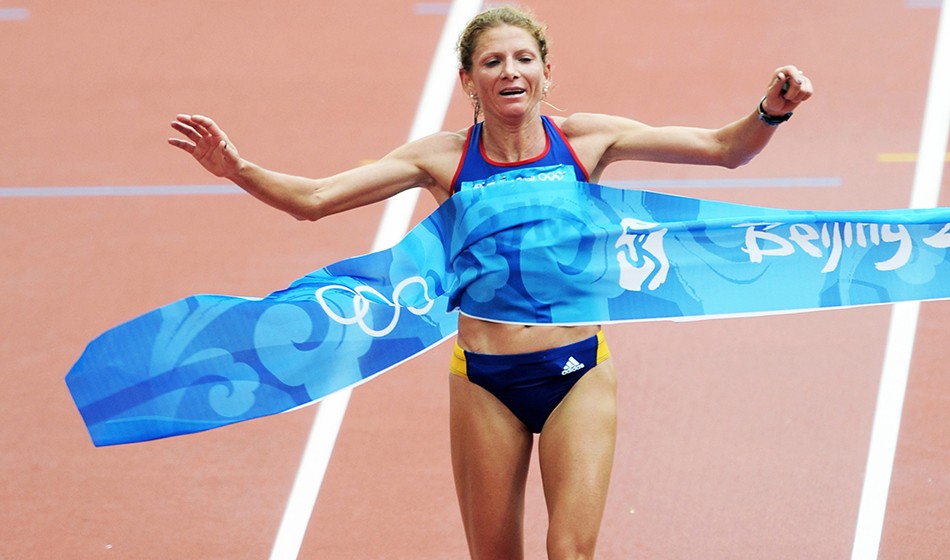Aged 38, the Romanian became the oldest winner of an Olympic marathon with a clean break from the field in Beijing and a run to redemption that proved her doubters wrong
Olympic Games, Beijing, August 17, 2008, Women’s marathon, first place, 2:26:44
I tried to get a medal in Athens in 2004 but I finished 20th. Afterwards, my coach who was my then-husband and I came back to Colorado and we put everything we did wrong down on paper so we could get it right for 2008.
Almost four months before Beijing, I went back to high altitude. For interval training, I was going out at 1600m up but for the longer runs on Thursday and Sunday, I went up the mountain to 2500m-plus.
We then did our acclimatisation at altitude in Japan, a four-hour flight away from China.
The preparation had gone well – we’d changed it a little bit to work in the hot weather, not going out very early. In Athens, it was very hot and there was also humidity but, in Beijing, it was raining for almost four or five days before the marathon and that totally changed things. I was lucky because I like the rain. The Beijing course was very good, too – it was flat, which I felt was very good for my chances to win the gold.
I woke up four hours before the start at 3am. Going from the room to breakfast, we could see the weather was perfect for running. We have a phrase in Romanian along the lines of “when it’s raining, you’ll be reached”. And I was reaching for the gold medal that day.
Back in Romania, they didn’t see much of me. I’d come third at a World Championships and won the Chicago marathon but they didn’t know. In the newspapers, it was mainly soccer. That was a motivation.
Another was to prove to people that age didn’t matter. What mattered more was how you were thinking, how powerful you were and how you competed. I was very strong mentally. I was a hard worker in training. Sometimes my husband stopped me because I pushed too hard.
We’d been talking about strategy before the competition. When I ran the Chicago and London marathons, it was different because in that situation you’re running for the time. At the Olympic Games, it’s different. We’d spoken about staying with the group for the first 25km and then, if the pace was very slow, to be the one to pull away.
You have a strategy but, during the race, you can change it a little bit based on what you what you see, what you’re feeling from the other athletes and what they’re doing.
In Colorado, at…
CLICK HERE to Read the Full Original Article at AW…

